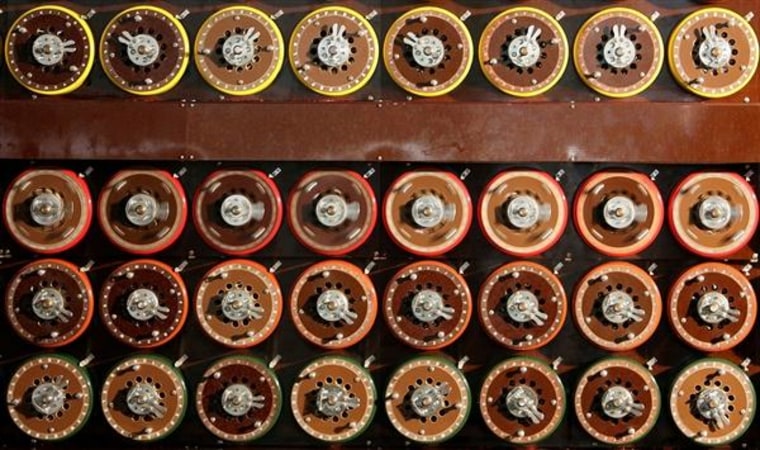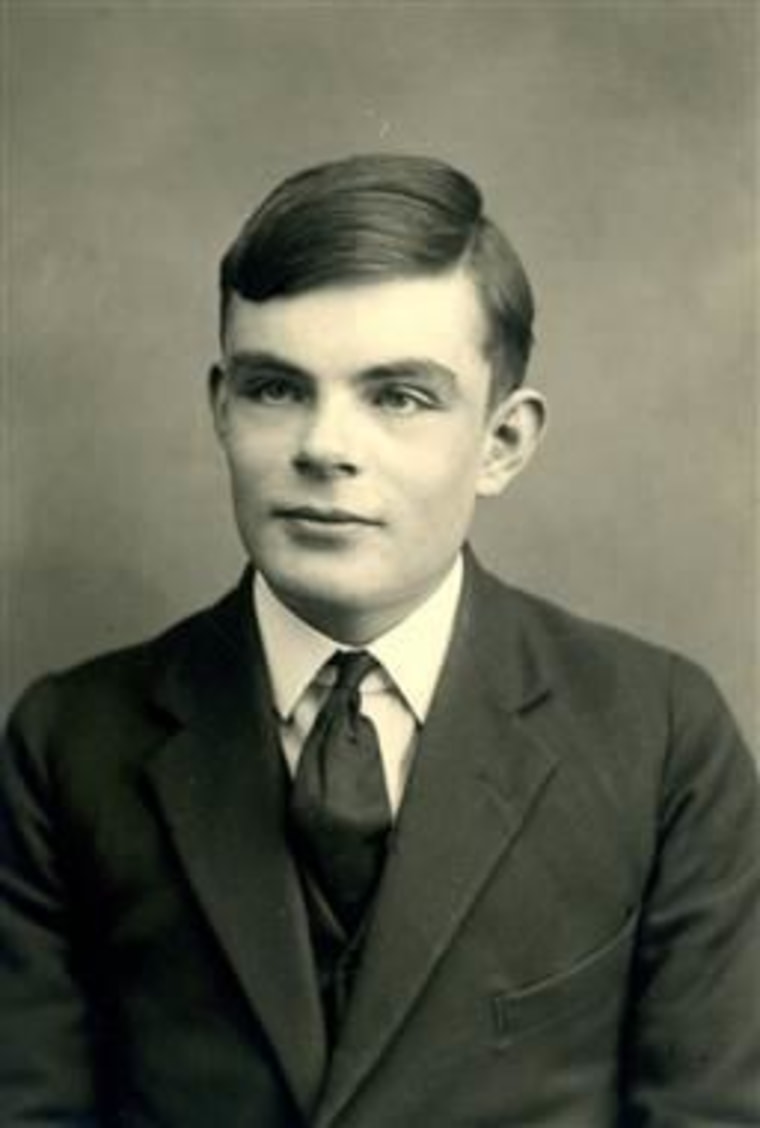Queen Elizabeth II granted a rare "mercy pardon" Monday to Alan Turing, the computing and mathematics pioneer whose chemical castration for being gay drove him to suicide almost 60 years ago.
Turing was one of the leading scientific geniuses of the 20th century — the man who cracked the supposedly uncrackable Enigma code used by Nazi Germany in World War II and the man many scholars consider the father of modern computer science.
By the time he was 23, Turing had hypothesized what would become today's computers — the Turing machine, which could emulate any computing device or program. Almost 80 years later, Turing machines are still used in theoretical computation.
In 1950, Turing came up with the famous Turing Test to determine whether a computer can be considered to have attained artificial intelligence.
But Turing was also gay at a time when that was a crime in Britain, and instead of being hailed as one of the crucial figures in defeating the Nazis, he was convicted of "gross indecency" in 1952 for having had sex with a man.
His security clearance was revoked, he was barred from working for the government and he was chemically castrated with massive injections of female hormones.
Less than two years later, in 1954, he killed himself with cyanide, an inquest found. He was just 41 years old.

In recent decades, as Turing's ideas and work have come to be recognized as the foundations of today's technology-driven world, scientists and technology leaders lobbied for him to be pardoned.
In 2009, the British government issued a posthumous apology, but scientists and gay-rights advocates wanted his name completely cleared. More than 37,000 people — many of them eminent scientists, led by Stephen Hawking — signed a petition last year urging Elizabeth to remove the scar from the name of "one of the most brilliant mathematicians of the modern era."
In his book "God Created the Integers," Hawking counted Turing among the most important mathematicians in history, alongside Euclid, Kurt Gödel and Bernard Riemann.
In a decree dated Tuesday but released Monday by Justice Minister Chris Grayling, Elizabeth said she was "Graciously pleased to extend Our Grace and Mercy unto the said Alan Mathison Turing and to grant him Our Free Pardon posthumously in respect of the said convictions."
In a statement, British Prime Minister David Cameron said Turing "saved countless lives" and "played a key role in saving this country in World War II by cracking the German Enigma code."
In a statement of his own, Grayling declared, "A pardon from the Queen is a fitting tribute to an exceptional man."
The rare pardon was issued under the "Royal Prerogative of Mercy," which has been exercised only three other times since 1945, the British newspaper The Independent reported.
